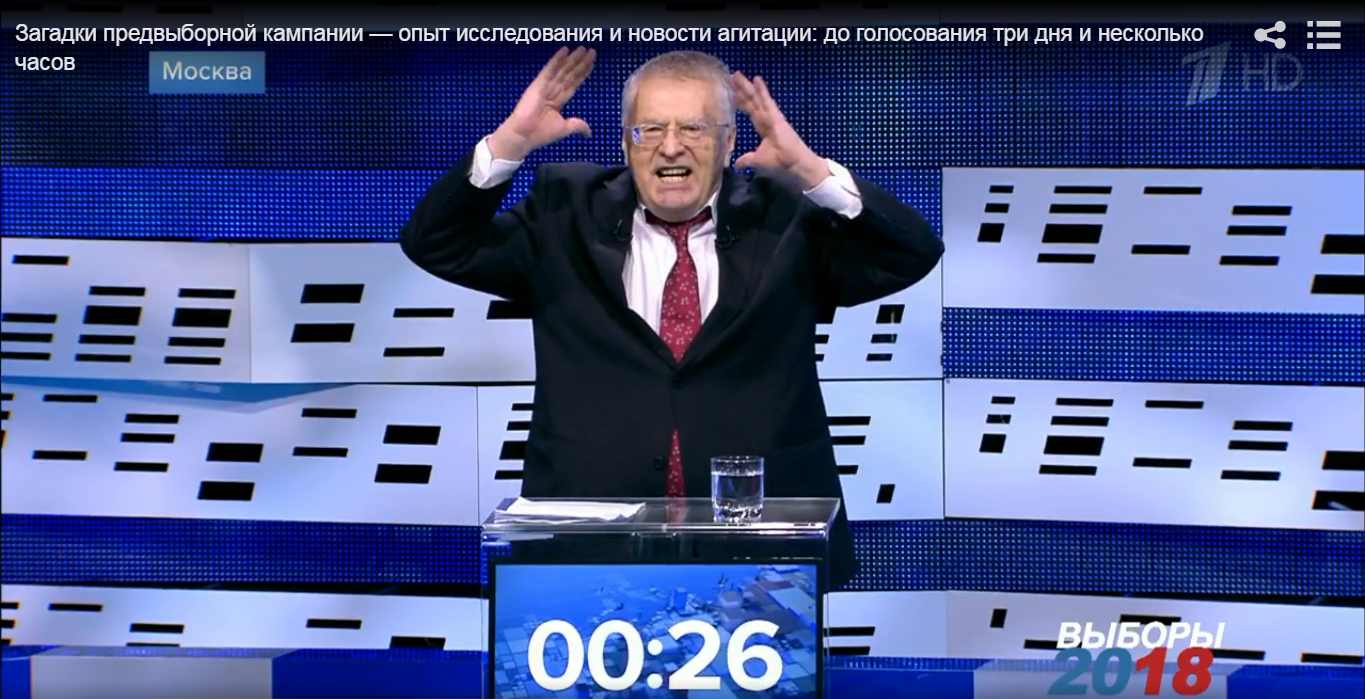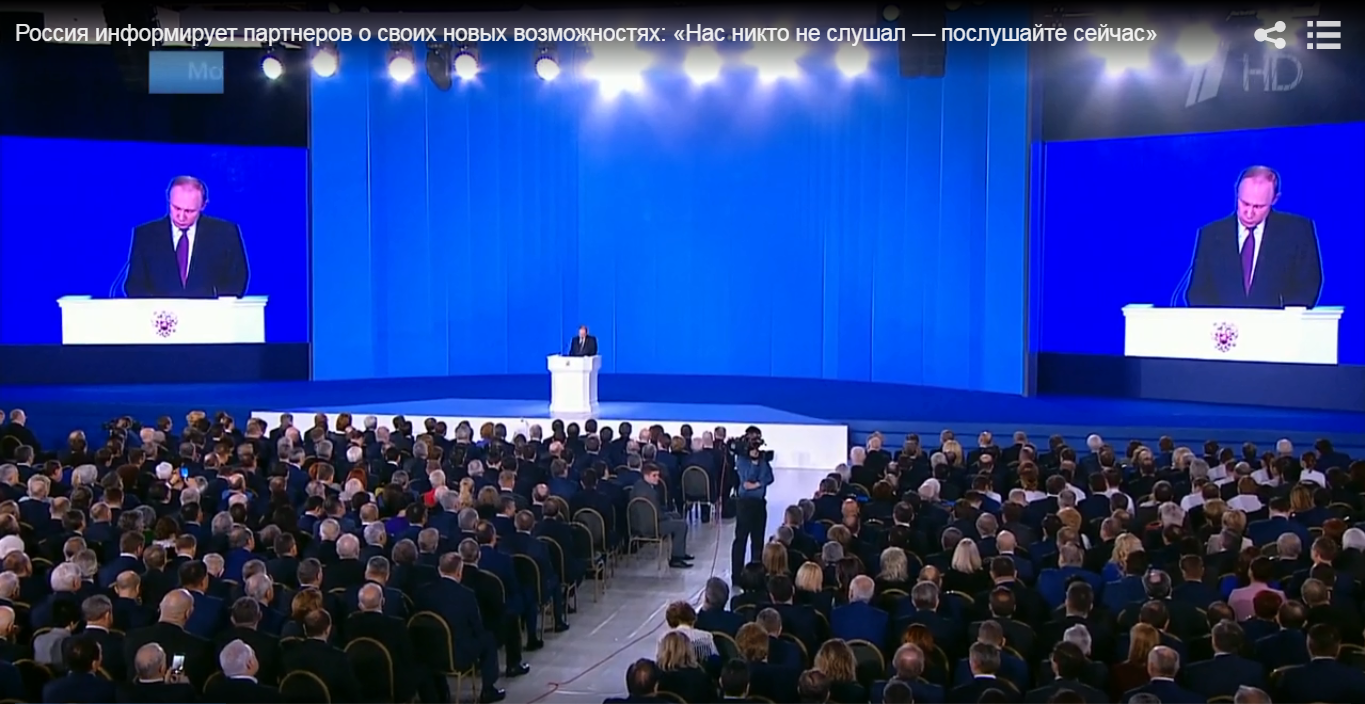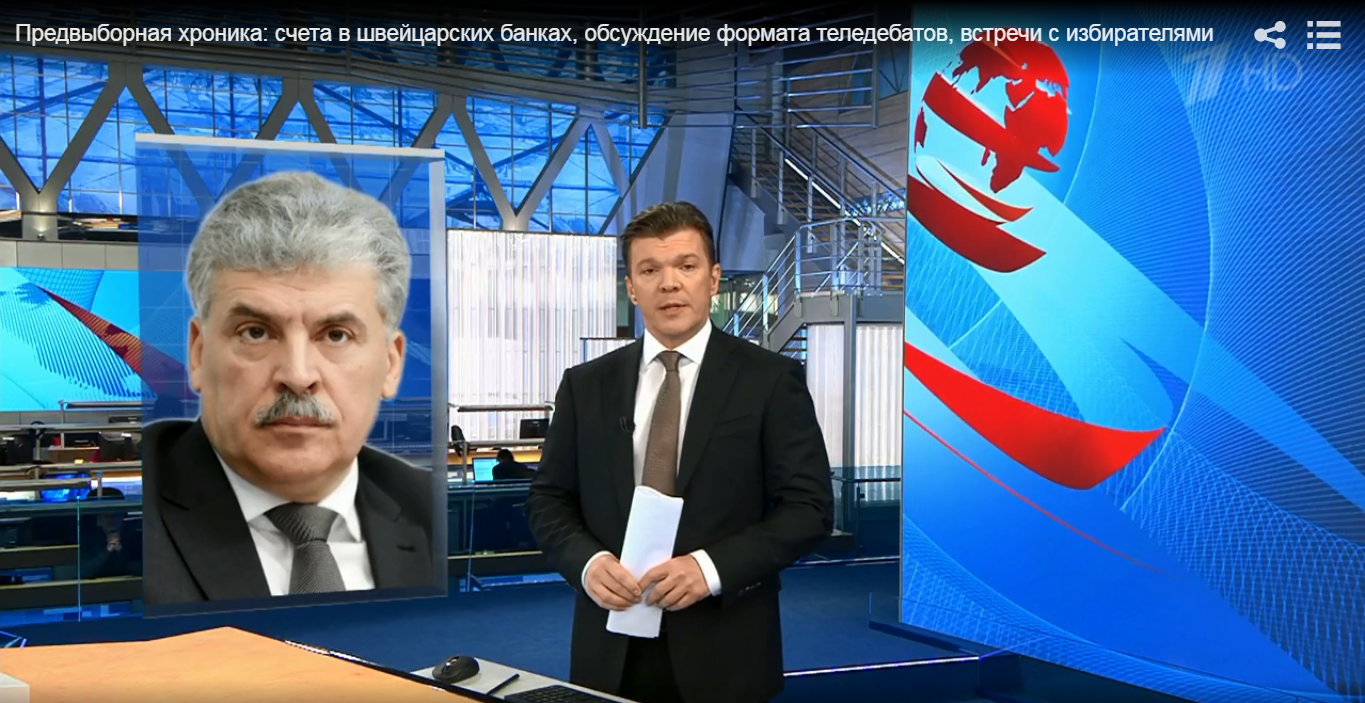
6 minutes
HOW THE PROPAGANDA CONTRIBUTED TO PUTIN'S FOURTH TERM
Information Peace, a group of Russian media analysts led by Luydmila Savchuk, in cooperation with the Slovak-based media monitoring organization MEMO 98, systematically monitored the media coverage of the 18 March presidential election in Russia. The monitoring was intended to offer a comprehensive and objective assessment of political diversity, accuracy, and balance in news and current affairs coverage on five television channels, one radio station, five newspapers, and six online media outlets. The methodology was developed by MEMO 98, which has carried out similar projects in more than 50 countries over the last 20 years. Given its comprehensive content-oriented approach, the methodology was specially designed to provide in-depth feedback on pluralism and diversity in media reporting, including coverage of chosen subjects and themes. The primary goal of the initiative was to inform the public about the conduct of media during the pre-election period and to initiate a discussion about the objectivity and quality of the media reporting.

Source: 1 st channel
Main findings
The Russian state media failed to provide sufficient information about political alternatives to incumbent Vladimir Putin ahead of the 18 March presidential election. Coverage on nationwide private channels was similarly limited. For the 2018 presidential election, a strong and independent media providing unbiased coverage of the political situation in the country, thereby enabling the electorate to make an informed choice, were significantly lacking.
Alexey Navalny, who was barred from running as a candidate, called for a boycott of the election. His political position was largely ignored by most of the monitored broadcast media, with the exception of TV Dozhd and Radio Ekho Moskvy.
The nature of the election process, whereby the incumbent refrained in most respects from conventional campaign discourse, including non-participation in public debates, and the only real opponent was barred from running as a candidate, did not provide basic conditions necessary for a normal democratic election.
First Channel, Russia 1, NTV and Ren TV, offered viewers an extremely limited range of political viewpoints. They presented only the official Kremlin position, and failed to offer any independent or alternative views, or any critical reporting challenging the performance of the authorities.
Coverage of the nationwide channels was driven by the official and election process-oriented agenda. The bulk of their news coverage was devoted to Vladimir Putin, primarily in his capacity as president (i.e. outside the campaign context). This gave him clear advantage over his opponents, none of whom received similar levels of airtime on the nationwide TV channels.
TV Dozhd and Radio Echo Moskvy, along with some online news platforms, presented a greater diversity of views, but their potential impact on voters in Russia is not comparable to that of state-controlled TV channels.
Of the five monitored newspapers, three supported the current establishment and two provided a slightly more balanced picture of the poltical and election-related events. In general, however, the newspapers did not compensate for the clear lack of balance on the part of broadcast media. They do not facilitate the exchange of opinions, public debate, confrontation, investigation and commentary, all of which are integral to meaningful public access to the political platforms of persons and groups seeking elected office.
Reporting by online media outlets was quite similar to that of the newspapers. These outlets did not provide investigative stories, nor deeper analyses of the current political situation. Three of the four monitored outlets, supported the incumbent president, while one was critical.

Source: 1st channel
The principal finding was that there was an exceptionally limited range of diversity of political actors on the main Russian TV channels. This was visible in both local and international coverage. There was a strong tendency to provide extensive coverage of the activities of state officials, highlighting achievements and successes, while neglecting to offer any independent and alternative views or critical reporting challenging the performance of the authorities. The primetime programs on the three channels failed to provide meaningful agenda-setting debates involving genuine public discussions on pressing economic, social and policy issues. The monitoring revealed that the national Russian channels have been used as instruments of propaganda, diverting attention from important domestic issues and challenges. Rather than serving as a platform for discussion on public policy issues, the main channels openly demonstrated bias, in breach of media ethics and the principles of impartial and objective reporting.
#
Source: 1st channel
The monitoring revealed that the national Russian channels have been used as instruments of propaganda, diverting attention from important domestic issues and challenges. Rather than serving as a platform for discussion on public policy issues, the main channels openly demonstrated bias, in breach of media ethics and the principles of impartial and objective reporting.
The full report how-the-propaganda-machine-stole-the-russian-election_1
#
Source: 1st channel








Source: 1st channel